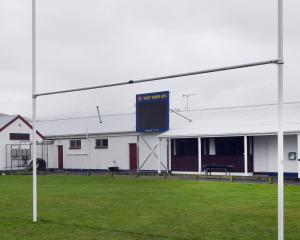The benefits of winning Gigatown will be enormous for Dunedin, University of Otago vice-chancellor Prof Harlene Hayne says.
Prof Hayne was among several leaders from the city's public and private sector who enthusiastically spoke about the opportunities that came from the city's Gigatown success.
''The implications of winning this competition are immeasurable for this city,'' she said.
''Without a doubt, having the fastest internet speed in the southern hemisphere will make Dunedin an attractive place for business.
''It will also provide a whole new selling point when promoting our city on the national and global stage.''
Information technology services director Mike Harte said it would make a difference for students studying in Dunedin.
''North Dunedin, where the majority of our students live, has one of the highest uptakes of ultra-fast broadband in the country. They currently enjoy 100-200Mb
per second speeds.
''Winning Gigatown means that North Dunedin residents will be able to get 1000Mb [or 1Gb] per second at the same price as they are paying now.''
He also referred to the city's winning Gigatown plan which talked about how faster internet could help improve collaboration between the university, Otago Polytechnic and the city's start-up sector.
ADInstruments chief marketing officer Julie Curphey said winning Gigatown would make it easier for Dunedin tech companies to compete on the world stage.
ADInstruments provided cloud-based learning systems over the internet so ''anything that helps with speed and accessibility is a big win for us'', Ms Curphey said.
This meant being able to upload videos and rolling out updates would happen faster.
''It all comes back to time and ease. People expect stuff to happen at the click of a button and [with 1Gb per second internet] it almost can now, rather than clicking a button and then waiting for something to upload,'' she said.
The win would also help put Dunedin ''on the map'' for tech companies, which would be more likely to set up in the city.
Southern District Health Board chief executive Carole Heatly said it intended to use faster internet speeds ''to its full capacity as a leader in health information technology''.
''We have the largest DHB physically in New Zealand, a challenge that clever and innovative IT design can beat.
''We can now utilise more and faster video linkages of specialists to improve the care to our patients.
''We can share our important data much faster which will ensure that our health professionals can deliver care wherever it is needed, and share it with those that need it,'' she said.












